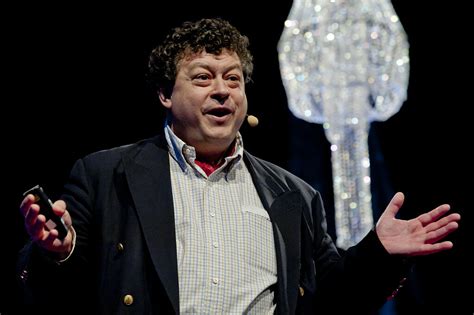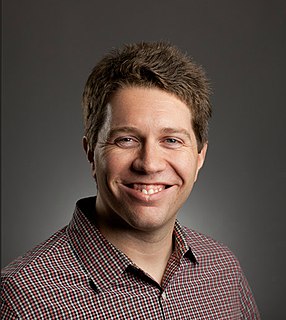A Quote by Rebecca MacKinnon
Google transformed the way most of us get our information with a search engine that enables us to find citizen-created media content alongside the work of professionals.
Related Quotes
All sorts of factors contribute to what Facebook or Twitter present in a feed, or what Google or Bing show us in search results. Our expectation is that those intermediaries will provide open conduits to others' content and that the variables in their processes just help yield the information we find most relevant.
Good information architecture enables people to find and do what they came for. Great information architecture takes find out of the equation: the site behaves as the visitor expects. Poor or missing information architecture neuters content, design, and programming and devalues the site for its owners as well as the audience it was created to serve. It’s like a film with no director. The actors may be good, the sets may be lovely, but audiences will leave soon after the opening credits.
What really interests me, on a deeper level, is how our information is coming to us in some kind of messed up way that is making us idiotic. I don't think we've become more idiotic than we always were, but I think the information transfer is funky. The shorthand of it is that social media is making us mentally insane.
We hypostatize information into objects. Rearrangement of objects is change in the content of the information; the message has changed. This is a language which we have lost the ability to read. We ourselves are a part of this language; changes in us are changes in the content of the information. We ourselves are information-rich; information enters us, is processed and is then projected outward once more, now in an altered form. We are not aware that we are doing this, that in fact this is all we are doing.
Search marketing, and most Internet marketing in fact, can be very threatening because there are no rules. There’s no safe haven. To do it right, you need to be willing to be wrong. But search marketing done right is all about being wrong. Experimentation is the only way. No one really knows whether that page will rank #1 in Google; no one really knows which paid search copy will get the highest click rate. Even experts can’t tell you which content will attract the most links. You just have to try it and see.
Whether it's by helping us search for health-related information, connecting us with doctors through online portals, or enabling us to store and retrieve our medical records online, the Internet is starting to show the promise it has to transform the way people interact with and improve their own health and wellness.
Get out of the way. This is actually Craig Newmark's law. As Google built the most powerful tool imaginable - the entire world of digital knowledge revealed behind a simple search box - so did Craig build a simple tool that changed society , and newspapers and real estate and more, without prescribing how we should use it. They create platforms to enable us to do what we want to do and then, instead of giving us rules about their use, then they stand back and put us in charge.

































